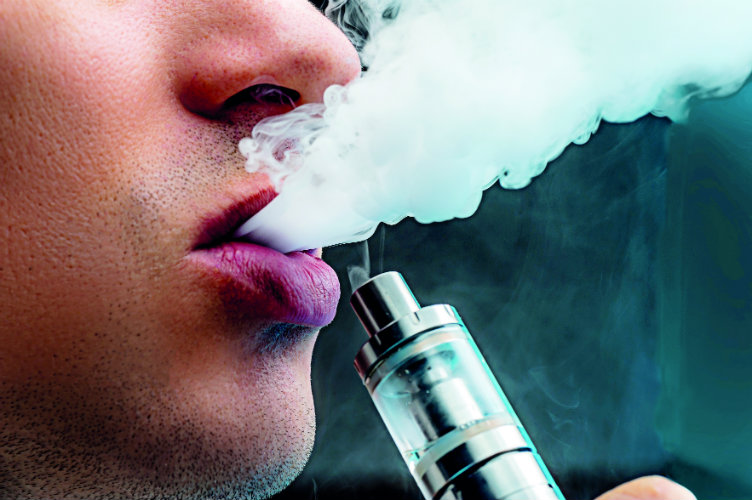The recent call for a ban on vaping appears misguided and a failure to appreciate the role of harm reduction in the fight against cigarette smoking
The first thing any policymaker should note about vaping is that, it is not meant for non-smokers. It is strictly for cigarette smokers who want to quit smoking and choose a healthier lifestyle. Is there any evidence that supports vaping to be less harmful than regular cigarettes?
It seems, in Bangladesh, the anti-tobacco lobbyists are not really looking into the relevant data before declaring a war on vaping and demanding a ban. By doing so, they are not helping the overall agenda of decreasing tobacco related burden in Bangladesh; they are in fact harming the cause. Here’s why:
Even a cursory look at the data available on vaping show that vaping has emerged as one of the most effective quit-smoking tools in the world. It is increasingly being accepted as a highly successful solution for helping smokers quit the life-threatening habit of cigarette smoking.
England’s most authoritative public health body, Public Health of England, in a groundbreaking review found that vaping is approximately 95% less harmful than cigarette smoking. Public Health England itself termed the finding as a “landmark review.”
As a result, the UK’s National Health Service or NHS, which is arguably the best health system in the world, now recommends vaping as a quit-smoking tool and the hospitals under NHS now have shops in hospital premises that sell vape products.
Why is this important? Other than the blatantly obvious and compelling reason that the most advanced health system in the world adopted vaping as a quit-smoking tool, the importance of understanding what role vaping can play is crucial for curbing tobacco usage in Bangladesh. Why? Because it works in real life.
A major clinical trial in the UK, published in 2019, found that people who used vaping to quit cigarette smoking were twice as likely to succeed than people who used other nicotine replacement products like patches or gum. Conducting clinical trials is the scientific procedure in medical science that determines the safety and effectiveness of medications, devices, diagnostic products and treatment regimens intended for human use.
Wouldn’t it be wonderful if every smoker woke up one day and quit smoking? Everyone knows that cigarette smoking is dangerously harmful to health. It is important to craft a robust strategy to ensure proper and safer usage of E-cigarettes to build a healthier nation. Forcing ex-smokers to give up vaping by banning it and pushing them back to smoking cigarettes cannot be a sensible policy.
Vaping isn’t completely risk free, says the NHS on its website. It goes on to say – “…but they carry a small fraction of the risk of cigarettes. Quitting with an e-cigarette is particularly effective when combined with expert face-to-face support.”
Of course, harm reduction advocates do not claim that vapes are not risk free. But doesn’t it make sense to use something that possess only “a small fraction of the risk of cigarettes,”? In other words, it is “95% less harmful” than cancer-causing tobacco cigarettes, as Public Health England found.
Taking a scientific approach to solve a problem produces results, wishful thinking does not. In England, a whopping 50 to 70 thousand people quit smoking in one year using vaping, as found in a study conducted in 2019. The study, published in the scientific journal ‘Addiction’, found that 50,700 to 69,930 smokers in England stopped smoking in 2017 through the use of vaping. ‘Addiction’ is the highest ranked peer-review journal in the world on substance abuse.
So, the question is, when proponents of vape-ban simply ignore the evidence and best practices relating to vaping, are they helping by any means to decrease tobacco related burden in Bangladesh? Reasonable people can make their own mind.
It is extremely important for policymakers to be sensible in understanding the problem and help the nation to adopt a strategy that exists and clearly works. Moreover, banning e-cigarettes is almost certain to facilitate a black market and push vapers to purchase unsafe products potentially lead to additional health risk.

